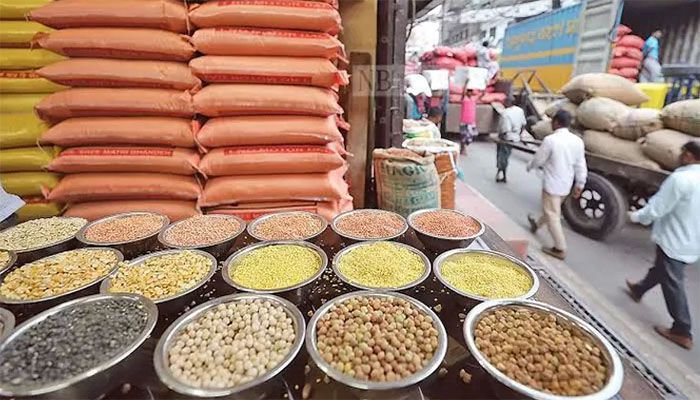
Desk Report
Publish: 22 Feb 2024, 02:15 pm

According to data from the Ministry of Agriculture, the country's demand for pulses, including lentils, moong beans, chickpeas, and field peas, is about 2.5 million tons per year || Photo: Collected
Rice, oil, and many other daily necessities are becoming more and more expensive, causing concern for consumers. On top of that, the prices of pulses have also risen considerably. Government data shows that over the past year, the price of moong pulses, for instance, has increased by 35 percent. A similar trend is seen in the prices of other pulses. Given this situation, consumers are worried about the prices in the market.
Moreover, the holy month of Ramadan is fast approaching, which typically sees an increase in demand for various pulses like chickpeas, moong beans, and lentils. However, the market for pulses remains uncertain. There are concerns that the situation could worsen in the near future.
In the country, the average demand for chickpeas is around 10,000 tons per month. During Ramadan, this demand increases to around 120,000 tons. This demand spike leads to higher prices for consumers. In the current market, chickpeas are being sold for 100 to 120 taka per kilogram, compared to the 85 to 95 taka range just a month ago.
At Karwan Bazar in the capital, one trader expressed frustration, saying, "No matter what our income is, we are unable to afford the rising prices in the market. Those with higher incomes may be able to pay, but those with lower incomes cannot. This is a problem."
The price of moong pulses has increased the most, by 35 percent over the year, with prices ranging from 120 to 180 taka per kilogram. Prices of lentils are being multiplied by 130 to 150 taka per kilogram. Prices are even higher in local markets, due to the increase in demand.
Another seller, trading in local markets, said, "VAT-tax, various types of complications—these factors contribute to the increase in prices. Now, it costs a thousand taka to travel from one place to another. As for commodities, who knows what could happen. This is a matter of uncertainty."
The lack of effective market regulation is causing price hikes in various products. The Consumers Association of Bangladesh is pushing for better market management throughout the year, not just during Ramadan.
The organization's vice president, SM Nazir Hossain, said, "We need coordinated market regulation, with representatives from various government departments coming together. Our administration, port authorities, Customs, Bangladesh Bank, and others should all be monitoring together."
According to data from the Ministry of Agriculture, the country's demand for pulses, including lentils, moong beans, chickpeas, and field peas, is about 2.5 million tons per year.
Subscribe Shampratik Deshkal Youtube Channel
Topic : Ramadan pulses prices of pulses price hike
© 2024 Shampratik Deshkal All Rights Reserved. Design & Developed By Root Soft Bangladesh